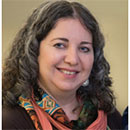In my last post, I summarized the available alternatives for internationally trained professionals in the education sector. In this post, I am sharing two usual options: Early Childhood Education, and Kindergarten to Grade 12 teacher.
Early Childhood Education (ECE)
Early Childhood Education (ECE) is a regulated occupation in British Columbia. To work as an early childhood educator, you are required to complete a certificate or diploma program in ECE or advanced/specialized ECE and have applied and obtained the ECE license from the ECE Registry in B.C. In most cases, international training and experience won’t be recognized. If you are passionate about working with small children or with special needs children, you may need to plan to go back to school and obtain Canadian experience.
ECE is divided into basic ECE and specialized ECE. Basic ECE will allow you to work as a preschool teacher, childcare provider for before and after school and out of school care, open your own family daycare or childcare facility or even manage a facility. You can take a four-month course, and start by getting your ECE Assistant license, and then complete the other 10+ courses while working.
Specialized ECE requires further studies after completing basic ECE courses. You can choose to specialize in infant and toddler or working with special needs children. These specializations would allow you to work at special needs centres and programs, or open your own. Specialized ECEs may also earn higher salaries.
Many ECEs take workshops to develop their skills and become more competitive, you can find both job listings and professional development workshops listed here: http://wstcoast.mrhost.ca/
Kindergarten to Grade 12 (K-12) teacher
Teachers in the K-12 system are divided into K-7 and 8-12 teachers, or elementary and high school teachers. Same as ECEs, K-12 teachers are highly regulated, which means that you need to have a bachelor's degree or post-graduate diploma in education, practical experience in a K-12 setting, apply and get a license from the Teacher Regulation Branch.
Unlike ECEs, the regulatory body may accept your international training and experience as long as it is comparable to Canadian standards. In most cases, the regulatory branch will ask you to take extra university courses depending on what areas and levels you are suitable to teach. The evaluation process can take a few months, but with the studies and practicum it may take up to 2-5 years for you to obtain a license that allows you to work as a K-12 teacher.
Independent schools (usually private and/or religious schools) have an alternative process for internationally trained teachers who may be specialized in a topic but have not completed the equivalent to a teacher diploma program. If an independent school sponsors you, you may be able to get an interim or partial permit issued faster. These permits are not transferable and may only allow to teach certain subjects or in a specific school.
A great place to start connecting with jobs is: http://www.makeafuture.ca/



